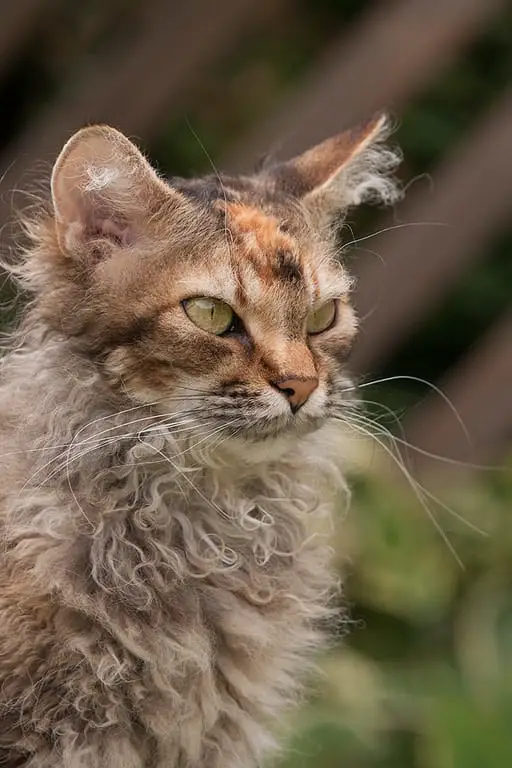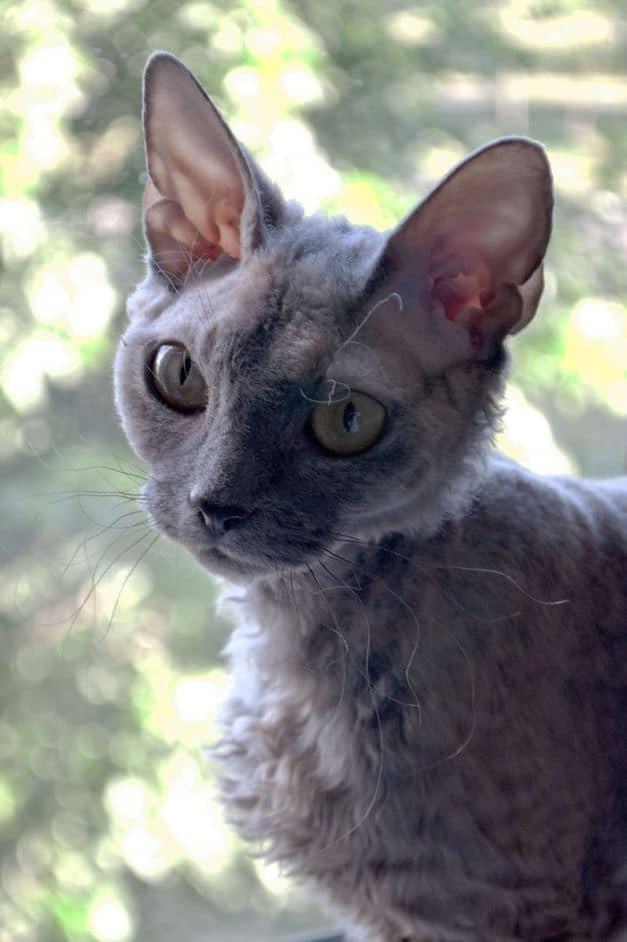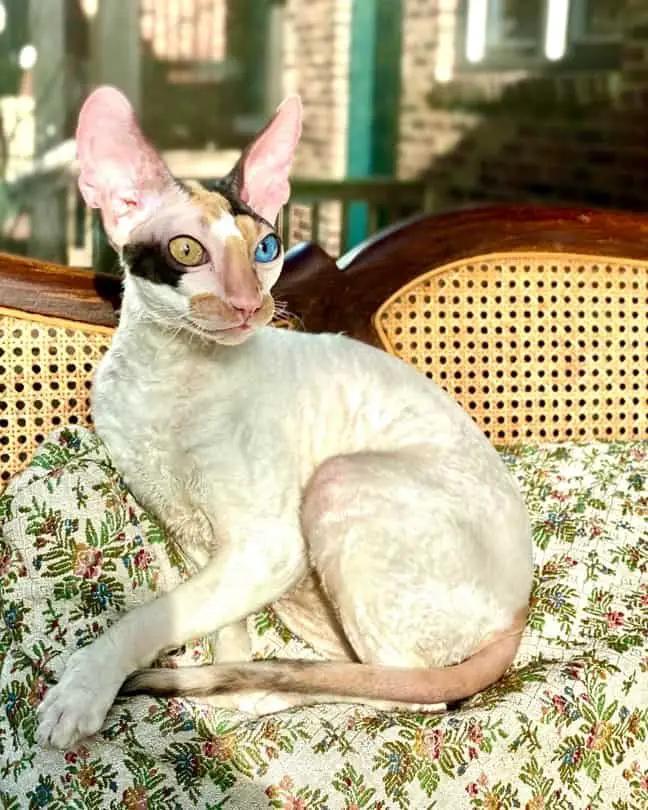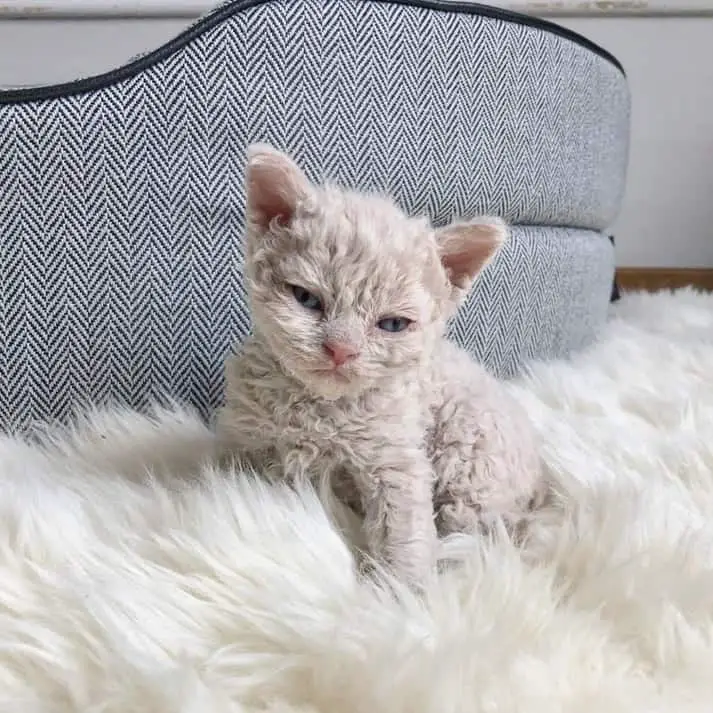Most cats have straight hair, but did you know that some cat breeds actually have curly hair? There aren’t all that many breeds that have curly hair, but there are a few. In today’s post, I’m going to list all of the cat breeds that have curls, which gives them a very unique appearance. Are you ready? Let’s get into it!
Cats with curly hair
You might be thinking: what, cats don’t have curly hair! and I wouldn’t blame you if you thought that. After all, it’s not very common to see a cat that has curls. However, there definitely are cat breeds that sport this unique feature. In total, there are no less than 4 different types of cats that boast luxurious curls.
Taking care of a cat with wavy curls isn’t all that different from taking care of a cat with regular, straight hair. Simply brushing their hair once in a while is all that’s required. Most cats are very adept at keeping themselves very clean. Do you want a cat that stands out from the rest and has a special appearance? Then take a look at these 4 cat breeds with curly hair.
1. LaPerm

Highlights: Playful, quiet, affectionate
The LaPerm is among the most famous cats with curly hair. That’s not a huge surprise because this cat really has magnificent curls. The curls they have can be small, but can also be quite big.
This breed originated in Oregon in 1982 when a cat named Speedy had a litter of kittens. One of these kittens looked quite different from her littermates – she was completely bald and had big ears that were spaced far apart from each other. Once she started growing hair, there was yet another surprise: she had curls! As a result, her owner named her curly.
Curly had kittens of her own later on and all of her kittens inherited the beautiful curly locks from their mother meaning that her curly hair was the result of a dominant gene. This breed gained recognition from the International Cat Association in 2002.
These cats come in many different colors and their wavy, curly fur stands out immediately. LaPerm kittens are usually born completely without hair, but once their fur starts growing in, you will notice their curly disposition within the first 4 months!
Overall, this is a very sweet, playful, and affectionate breed. They love human interaction and are good with kids. On top of that, they’re not very vocal, so if you’re looking for a curly cat who won’t miaow the whole house together, the LaPerm is definitely one to consider!
2. Devon Rex

Highlights: Friendly, easy to groom, doesn’t shed much
The Devon Rex is very noticeable because of its special appearance. It has a curly, wavy coat, large ears, and a head that’s shaped differently from most other cats. Their huge ears on their relatively small head give them a very endearing, elfish kind of look which some people absolutely love.
Little is known about this breed’s ancestry because his mother was a stray and his father is believed to be a roaming tomcat. The breed originated in Devonshire in the United Kingdom, which is where the name Devon Rex comes from. The breed was first introduced in the United States in 1968 and it was recognized by the Cat Fanciers Association in 1979.
If you’re allergic to cats, the Devon Rex might be a great choice for you. This cat doesn’t shed much of its curly hair and because of that, people who have allergies to cat dander usually respond well to this particular breed.
The Devon Rex is also very affectionate and loves being around people all day long. They’re also very kind to strangers, great with kids, and are a playful breed even when they’re adults.
3. Cornish Rex

Highlights: Very playful, great with other pets, affectionate
The Cornish Rex comes from Cornwall in the United Kingdom. The first of this breed was born in 1950 as a result of a natural mutation that gave him short, curly hair. His short curly coat immediately made him stand out from the rest of the litter and as a result, efforts were made to breed this cat.
The Cornish Rex is a very playful cat that’s often described as “doglike” because it willingly retrieves toys that are thrown by the owner.
Their coat is kind of similar to that of a Rex Rabbit or a lamb – quite thick and curly.
This breed often gets mixed up with the Devon Rex, but they are definitely different. You can immediately tell a Cornish Rex apart from a Devon Rex by looking at the shape of their head. A cornish rex has a fairly normal-looking head, while that of the Devon Rex is definitely a bit more unique.
This breed is beloved among cat owners not only because of its curly hair and huge ears which give it an elfish appearance, but also because of how well it gets along with other pets, its playful nature, and how loving it is towards humans.
4. Selkirk Rex

Highlights: Patient, kid-friendly, Tolerant
The Selkirk Rex has a thick coat of luxurious woolly curls. Like the other Rex cats, its curly coat is the result of a genetic mutation that happened naturally. However, this cat looks fairly different from the other rex cats because it has a much thicker coat and a bigger body.
This breed originated in the United States, Montana in 1987 as one of a litter of six kittens. All her littermates had a typical straight coat, but this curly-haired female looked so different that she caught the attention of a cat breeder named Jeri Newman who adopted her. Jeri bred her with a Persian cat and 3 of the 6 kittens she produced also had her characteristic curly coat.
This is interesting because it indicates that the gene that gave her curly hair was dominant rather than recessive as was the case in the Cornish and Devon Rex.
This breed is very patient, tolerant, and relaxed making it a great family cat. But just because this breed likes to take it easy doesn’t mean they do not want to play, they love to engage in play-time and if they feel like they’re not getting enough attention they won’t hesitate to let you know through their vocalizations.
Closing thoughts
So, now you know all there is to know about cats with curly hair! I hope you found this listicle informative, entertaining, and fun to read!
Curly-haired cats are very unique, and you don’t see them often, but they definitely do exist as a result of natural mutations. Which curly feline is your favorite?
- How Long Do American Eskimo Dogs Live? Important Factors and Care Tips - September 29, 2023
- Do American Bulldogs Need Grooming? Essential Tips and Care Guidelines - September 29, 2023
- Do Bengal Cats Enjoy Playing? Essential Tips for Keeping Them Active - September 29, 2023